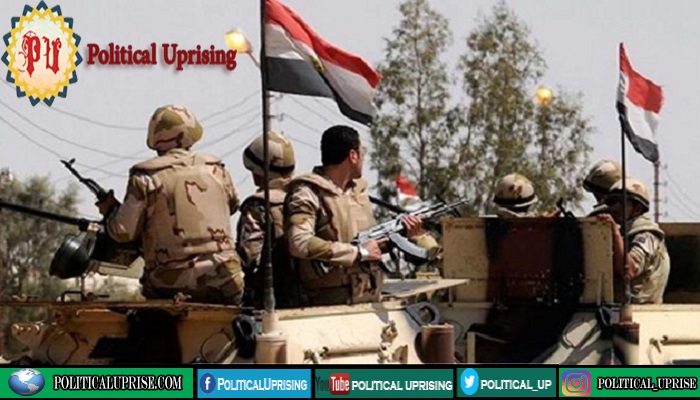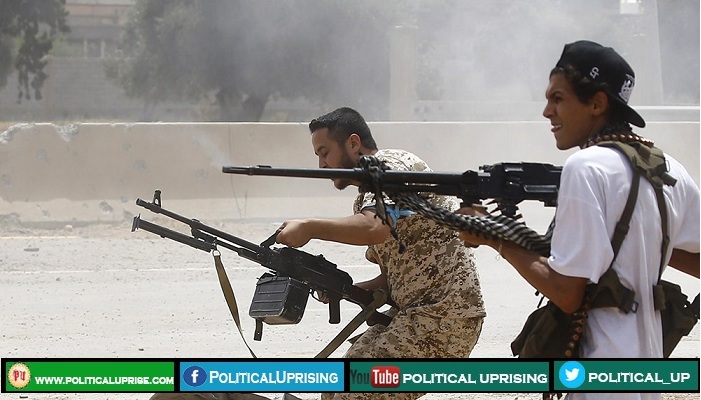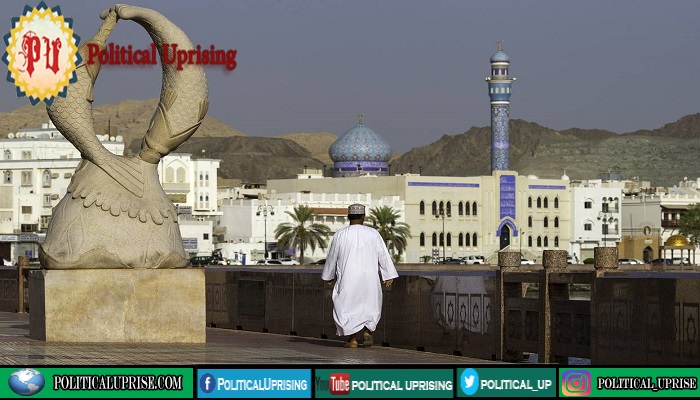Egypt’s parliament packed with supporters of President Sisi, approved plans to send troops to “defend Egyptian national security”.
Move comes as Libya gov’t and Turkey demand an end of foreign intervention in support of commander Khalifa Haftar.
Egypt’s parliament authorised the deployment of troops outside the country after the president threatened military action against Turkish-backed forces in neighbouring Libya.
The move could bring Egypt and Turkey, which support rival sides in Libya’s chaotic proxy war, into direct confrontation.
Turkey, meanwhile, demanded an “immediate” end to the support for rebel commander Khalifa Haftar in Libya after trilateral talks held in Ankara between Libyan, Turkish, and Maltese officials on Monday.
“It is essential that all kind of help and support given to putschist Haftar which prohibits ensuring Libya’s peace, tranquillity, security, and territorial integrity ends immediately,” Turkish Defence Minister Hulusi Akar said.
Haftar’s backers should “stop supporting an unrealistic and wrong project”, the UN-recognised Government of National Accord’s (GNA) Interior Minister Fathi Bashaga said.
Leaders of Sudan,Ethiopia and Egypt to agree Nile dam deal
Egypt, the United Arab Emirates, and Russia have been backing Haftar’s eastern-based forces in the conflict, while Turkey supports the GNA.
An Egyptian intervention would further destabilise oil-rich Libya.
Egypt’s president warned in June that any attack on Sirte or the inland al-Jufra airbase would prompt Cairo to intervene militarily, purportedly to protect its western border with Libya.
The GNA denounced Egypt’s threat of military intervention in the North African nation, labelling it a “declaration of war”.
Libya was plunged into chaos when a NATO-backed uprising in 2011 toppled longtime leader Muammar Gaddafi, who was later killed.

The country is now split between a government in the east, allied with Haftar, and one in Tripoli, in the west, recognised by the United Nations.
The conflict has escalated into a regional proxy war fuelled by foreign powers pouring weapons and mercenaries into the country.
The United States has grown increasingly concerned about Moscow’s growing influence in Libya, where hundreds of Russian mercenaries backed a failed attempt by Haftar’s forces to capture Tripoli.
In a call on Monday with US President Donald Trump, el-Sisi emphasised Egypt’s aim to “prevent further deterioration of security in Libya”, according to a statement from the Egyptian presidential spokesman. It said the two leaders agreed on maintaining a ceasefire and avoiding a military escalation in Libya.
Leaders of Sudan,Ethiopia and Egypt to agree Nile dam deal
A handout picture released by the Egyptian Presidency on June 6, 2020 shows Egyptian President Abdel Fattah al-Sisi (C), Libyan commander Khalifa Haftar (R) and the Libyan Parliament speaker Aguila Sa
Egypt’s state-run Al-Ahram daily reported on Sunday the vote in Parliament was intended to mandate el-Sisi to “intervene militarily in Libya to help defend the western neighbour against Turkish aggression”.
Last week, el-Sisi hosted dozens of tribal leaders loyal to Haftar in Cairo, where he repeated that Egypt would “not stand idly by in the face of moves that pose a direct threat to security”.
Libya’s eastern-based parliament that supports Haftar also urged el-Sisi to send troops.
Haftar’s self-styled Libyan National Army (LNA) launched an offensive to take Tripoli from the GNA in April last year, but the campaign stalemated after reaching the outskirts of the Libyan capital.
Israeli govt Appoints New Ambassador to Egypt,After delay Over a Year
The LNA suffered a blow last month when GNA forces with Turkish air and logistics support pushed it back and gained the upper hand in the fighting.
The Tripoli forces retook the capital’s airport, all main entrance and exit points to the city, and a string of key towns in the region. GNA troops pushed on eastward vowing to also retake Sirte, which Haftar captured earlier this year.
Seizing the strategic city would open the door for the Turkish-backed forces to advance even further eastward and potentially take vital oil installations, terminals and fields now under Haftar’s control.
After the GNA signed security and maritime agreements with Turkey last year, Ankara’s military support including drones helped it re-impose control over Libya’s northwest.



